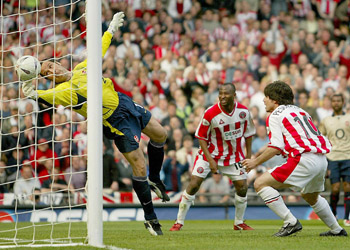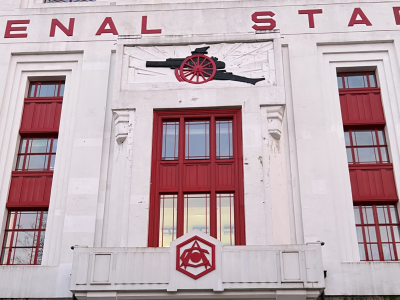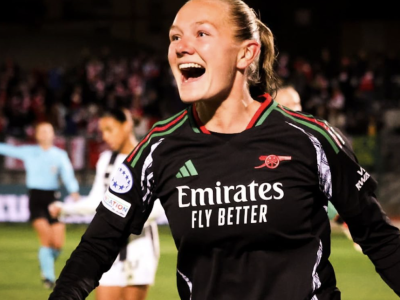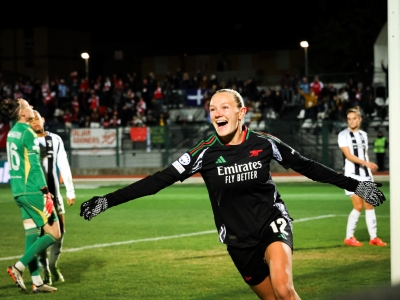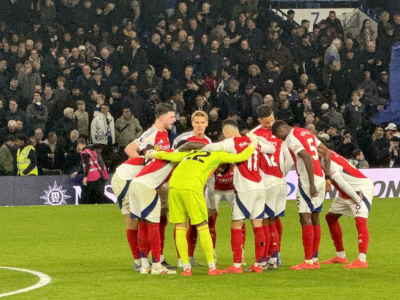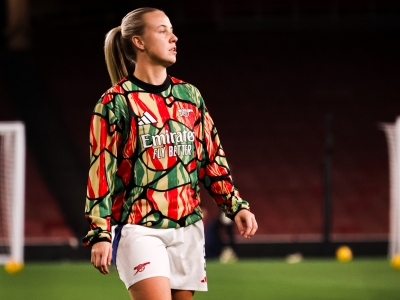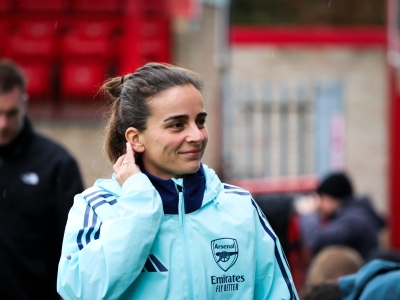Arsene Wenger’s first venture into the FA Cup came in 1997. Arsenal got past Sunderland in the third round after a replay, before meeting George Graham’s Leeds United at Highbury in the fourth round. GG put Wenger to the sword with a 0-1 defeat from a Rod Wallace goal after twelve minutes to end Wenger’s first FA Cup run. The following year, Wenger had more success and reached his first FA Cup Semi Final in April 1998. Double chasing Arsenal stood second in the Premiership just three points behind Premiership leaders Man United with two games in hand on the back of four straight wins.
The Gunners were drawn against a Wolves side standing eighth in the second tier with hopes of bagging a play-off place. Arsenal took the lead on the back of a poor clearance by former Forest and Wimbledon Dutch keeper Hans Segers. A storming run from the imperious Patrick Vieira led to the Frenchman putting George Weah’s cousin Christopher Wreh through on goal. The Liberian converted to put Arsenal ahead and secure an FA Cup Final appearance with a 1-0 win. After bagging the title, Arsenal secured their second League and FA Cup Double with a 2-0 win over Newcastle at Wembley.
It was around this time when a Wenger-Ferguson duopoly on English football sprung up. Twelve months on, Arsenal had been drawn against Man United in the FA Cup Semi Final. At the time, Man United topped the Premiership by one point and had a game in hand over Arsenal. The historically much less spoke of first game passed off as a 0-0 draw, one of the main talking points being a Nelson Vivas red card in extra time. Three days later came the replay – what turned out to be the very last ever FA Cup Semi Final replay, as ever since each Semi had been decided on the day by penalties if necessary.
Man United took the lead with an excellent twenty five yard strike. With just over twenty minutes left to go, from roughly the same distance Dennis Bergkamp struck Arsenal’s equaliser. As normal time drew to a close, Arsenal began to look the team more likely to win it. Nicolas Anelka put the ball in the United net, only to be disallowed for offside. Within seconds of that, Roy Keane committed a second bookable offence and was red carded by referee David Elleray. In stoppage time, Phil Neville brought down Ray Parlour in the box for a penalty against Man United. Dennis Bergamp stepped up, but Peter Schmeichel saved. With eleven minutes left to play, a misplaced Patrick Vieira pass ended up with an incredible run and solo goal by Ryan Giggs. Man United inflicted a 1-2 defeat on Arsenal.
A terrific game, but Arsenal came out second best. Man United won the treble, but I’d argue with anyone that Arsenal in 1998/99 – conceding just seventeen goals, losing one game from Christmas onwards and missing the title by just one point - are arguably the greatest English domestic side to finish a season trophy-less. In 1999/2000, a fourth round exit to Leicester City on penalties would be the only time during this eight year period when Arsenal would fail to reach the Semis. In 2000/01, Arsenal would again by drawn against Man United. With Wembley out of action due to the seven year-long rebuild of the national stadium, the nation’s next biggest football venue would host the Semi Final. This meant that the two sides who play their home games just four miles apart, would be dragged two hundred miles to face each other at Manchester’s Old Trafford stadium.
Not long after the two sides were drawn against each other, Spurs sacked George Graham for comments about the Tottenham transfer budget. GG would be replaced by Spurs icon Glenn Hoddle. Eight days prior to the tie, Arsenal beat Spurs in the League at Highbury 2-0 on the same day as David Rocastle’s untimely passing at the age of just thirty three. At the time, Arsenal stood second in the table, but thirteen points off of Man United at the summit of the Premiership. Spurs meanwhile were twelfth in the table. In the Semi Final, Spurs took the lead on fourteen minutes with a goal from Gary Doherty.
Twelve minutes before half time, Patrick Vieira equalised for the Gunners. Sixteen minutes from the end, Robert Pires scored his second goal against the Auld enemy in eight days, for a 2-1 win for Arsenal. Some thought that with the year ending in one, this time it might be Spurs’s year. Robert Pires’s winner however meant that the year for Spurs would simply end in tears. Twelve months on, Arsenal were back at Old Trafford in the Semi Final against Middlesbrough. The difference this year was that the chant doing the rounds aimed at Tottenham was to the chorus of Bruce Channel’s ‘Hey Baby’(reprised around the time by DJ Otzi), of ‘I Wanna Know Where Your Captain’s Gone’.
Spurs’s Captain of a year prior - Sol Campbell - was now lining up for Arsenal after moving down the other end of the Seven Sisters Road on a free transfer under the Bosman rule during the summer of 2001. Arsenal at the time topped the table by one point over second place Liverpool. Middlesbrough in contrast were ninth. Boro’s Gianluca Festa, under pressure from Sol Campbell in the box, ended up putting the ball into his own net, as Arsenal ran out 1-0 winners, Arsenal finished the season with their third League and FA Cup Double, secured with a win over Chelsea in the FA Cup Final at Cardiff and defeating Man United at Old Trafford.
It would pan out to be a hat-trick of FA Cup Semis for Arsenal at Old Trafford, this time against Sheffield United. At the time, Arsenal were three points behind Premiership leaders Man United. Sheffield United on the other hand were third in the second tier. Arsenal took the lead in controversial circumstances after the referee broke up a Blades attack by accidently bumping into a Sheffield United player. Arsenal then went up the other end of the field and took the lead with a goal from Freddie Ljungberg. Another noteworthy element of this game would be a superb David Seaman save which prevented a Sheffield United equaliser. Arsenal progressed to the final with a 1-0 victory. The Premiership may have been missed out on, but Arsenal went on to win the FA Cup with a 1-0 win over Southampton.
Arsenal reached a fourth straight FA Cup Semi Final in 2003/04 – this time not at Villa Park and not Old Trafford, by virtue of the fact that the opposition this time were Man United. At the time, Arsenal held a seven point lead at the top of the table and were unbeaten in the league from the very start of the season. A week prior, Man United had disrupted a run of nine straight wins for the Gunners by holding Arsenal to a 1-1 draw at Highbury. Man United were to frustrate Arsenal further, as a goal for Paul Scholes just past the half hour with no further scoring meant that a 0-1 defeat for Arsenal and no FA Cup Final for the first time in four years, though did go on to win the Premiership unbeaten.
Arsenal however would reach a fifth straight FA Cup Semi Final in 2004/05, this time against Blackburn Rovers. In what was anticipated to be the very last year in which the FA Cup Final would be played in Cardiff (with New Wembley due to be finished in 2006), the FA decided that both Semis would also be played at the Millennium Stadium. Robert Pires gave Arsenal the lead three minutes before half time. There would be no further scoring until the introduction of Robin Van Persie as sub eight minutes from time. RVP would double Arsenal’s lead on eighty six minutes and then bag a second in time added on, in the process of which he would be physically assaulted by Blackburn’s Andy Todd. Arsenal however ran out 3-0 winners.
A 0-1 away defeat to Bolton Wanderers in the fourth round of the FA Cup in January 2006, with a goal from Stelios Giannakopoulos six minutes from time, brought to an end Arsenal’s most successful ever period in the FA Cup. It would be nine years before another trophy was won, though Arsenal did reach the FA Cup Semis again in 2008/09. This led to Arsenal’s first appearance at the new Wembley to meet Chelsea. At the time, Arsenal were in fourth place in the Premiership and six points behind Chelsea who were third. Arsenal took the lead on eighteen minutes through a Theo Walcott shot via Ashley Cole’s hand. Chelsea equalised with ten minutes to go until half time with a shot from Florent Malouda.
The match would be settled by a defensive mix up between Mikael Silvestre and Lukasz Fabianski for Didier Drogba to pounce for Chelsea’s winner six minutes from time to inflict a 1-2 defeat on Arsenal. Chelsea went on to win the 2009 FA Cup Final with a victory over Everton in the Final. Arsenal then had to wait another five years to reach the FA Cup Semi Final again. This time it would against reigning FA Cup holders Wigan Athletic. In the Premiership, Arsenal had won just one of their last six games and had sunk from being top of the table in late February to just one point ahead of Everton in fifth having played one game more. Wigan in contrast were in fifth place within the second tier.
Arsenal made extremely hard work of the game and conceded a penalty just past the hour mark, when Per Mertesecker brought down Callum McManaman in the box, which was successfully converted by Jordi Gómez. It wasn’t until eight minutes from the end of normal time, when Per Mertesecker made amends for his earlier blunder to head Arsenal’s equaliser to send the game into extra time. With no further scoring the game ended 1-1, end went to a penalty shootout – the very first which Arsenal would face in an FA Cup Semi Final. Arsenal successfully scored all four penalties, while Lukasz Fabianski saved two of Wigan’s. After Santi Carzorla converted his penalty, Arsenal secured their place in the 2014 FA Cup Final. In the final against Hull City, Arsenal were also successful but similarly made hard work of it, as the Gunners won their first trophy in nine years.
Arsenal were back at Wembley in the FA Cup Semi Final twelve months later. The Gunners were again drawn against lower League opposition in Reading, who were eighteenth in the second tier at the time having won just one of their last six games. Arsenal in contrast were actually having a better time of it than usual in recent seasons. Since Christmas, the Gunners had won thirteen games out of fifteen. The crucial thing to remember here however is that even after this run, they stood seven points behind Jose Mourinho’s Chelsea in second place and had never been within close touching distance of the Blues throughout the second half of the season, hence not coming into contact with much in the way of pressure.
Arsenal took the lead with a goal from Alexis Sanchez six minutes from half time with an assist from Mesut Ozil. Nine minutes into the second half, Reading equalised with a goal from Garath McCleary. The game went into extra time. Early on in the second period, a shot from Sanchez had been spilled by Reading keeper Adam Fedeici over the line to put Arsenal ahead. With no further scoring, Arsenal progressed to the final with a 2-1 victory. Around this period, the ‘Alexis Sanchez Baby’ chant to the tune of the Human League’s ‘Don’t You Want Me Baby’ sprung up. However, with two goals in the semi and a cracking goal in the final from Sanchez, if you know your Sheffield-based eighties synth pop it was more a case of Heaven 17. Arsenal secured their record twelfth FA Cup with a 4-0 hammering of an Aston Villa side in freefall who went on to be relegated the following term.
Last year, Arsenal missed out on a hat-trick of FA Cup Semi Final appearances after suffering a hugely disappointing 1-2 home defeat to Watford. And so on to Sunday. It’s fair to say that there probably hasn’t been a more downbeat feel surrounding the club going into an FA Cup Semi Final than the mood which surrounds this game. Leaving aside the long winded argument as to whether the FA Cup is a trophy worth winning anymore, one thing that is certain is that winning it is no longer an end in itself for a club of Arsenal’s stature – in 1993, winning the Cup instantly turned a mediocre season finishing tenth in the League into a memorable one. In 2017, that certainly is no longer the case and as seen from the fate of Louis Van Gaal last year, winning the trophy alone is no longer enough for a manager to keep his job at an ambitious top end side.
Looking on the merits of the game alone, if there’s one thing in Arsenal’s favour it’s that we’ve been drawn against the one side among the top six that Arsenal have had the most amount of success against when they’ve come head to head with them. And from the 2-2 draw against them a few weeks back, City’s performance was also as lacklustre as Arsenal’s, making a spring time battle for a Champions League place look more akin to a pre-season friendly. The optimist within you hopes against hope that Wenger can somehow win the FA Cup (up against a final four much better than that which reached the Semis in 2014 and 2015), somehow grab a fourth place finish in the Premiership and then somehow acquire enough self-realisation that he can’t take the project any further and quit on a relative high (but maybe, that’s probably far too much to ask!).
If Wenger does leave this summer, he will leave behind a legacy so confusing that future observers will be baffled at making head nor tail of it. The cold hard facts are that Wenger is Arsenal’s most successful ever manager in terms of finishing positions and trophies won and yet - looking at the detail behind those facts - during his reign there have been just as much in the way of achievable opportunities that were squandered (even more so over the last decade). To confuse the legacy even further, if Wenger does go on to win the FA Cup this season, he will break the record for winning the most FA Cups as manager – despite being one of the first managers to downgrade the tournament by playing weakened squads in the earlier rounds.
Wenger also openly admits to relegating in it in importance behind a fourth place finish during the nine year trophy famine between 2005 and 2014 – specific examples of which include fielding a weakened side to face Stoke City away in 2010 and the 0-4 drubbing against Man United at Old Trafford in 2008, to which the report of the game in the Independent Newspaper had highlighted: ‘His post-match demeanour suggested that it had been no mental torture for Wenger to accept the fate of his team's FA Cup campaign as he considers Wednesday's Champions League game against Milan’.

